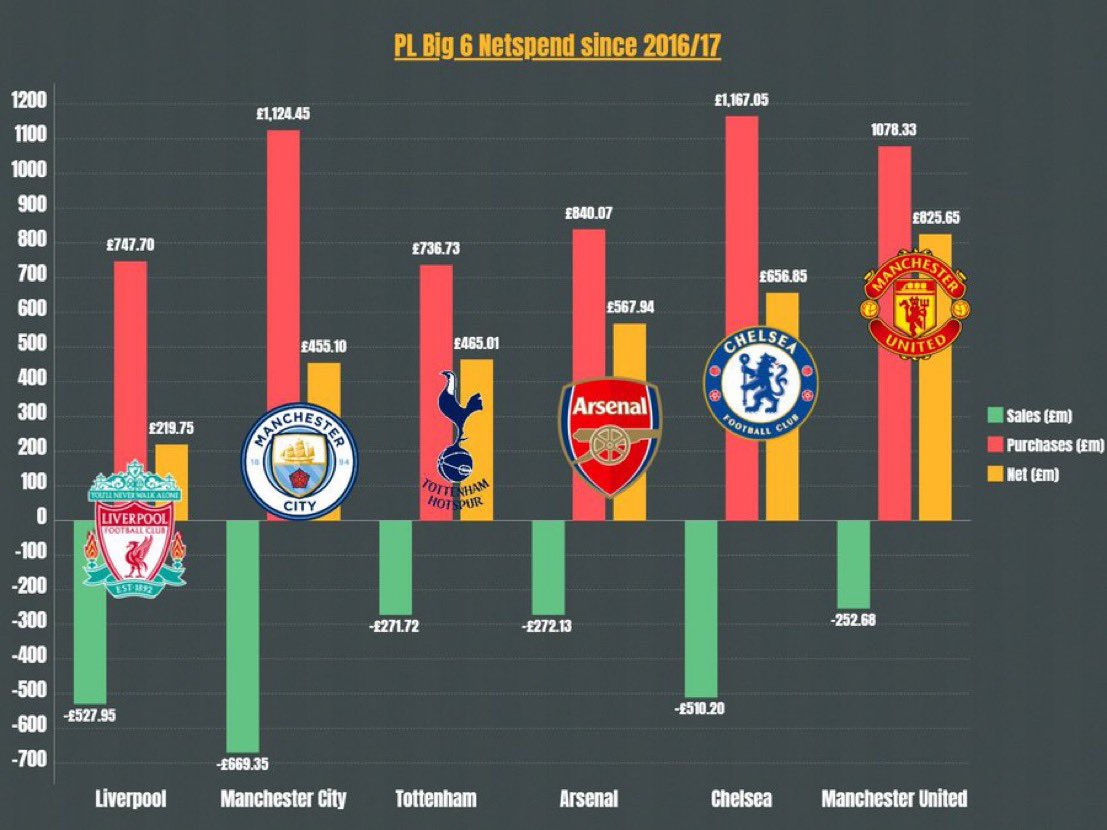Does Pep overthink things?
Analyzing all of Guardiola’s Champions League defeats
by Michael Cox
Everyone knows the drill by now. Pep Guardiola names a surprise starting XI or formation for a big Champions League game, his side are eliminated, and Guardiola gets the blame for “overthinking” things.
It’s become something between a long-running joke and genuine criticism and by now we’re well into the realms of confirmation bias. But to what extent has Guardiola’s tactical approach actually been to blame for Guardiola’s Champions League exits over the years? Here’s a look at the decisive tie in Guardiola’s 13 Champions League campaigns.
(Beforehand, a couple of caveats. Firstly, by largely concentrating on the defeats, this inevitably overlooks the many occasions when Guardiola’s tactical approach has worked excellently. Secondly, “overthinking” here is used as a synonym for “overcomplicating”. Whether it’s actually possible to think too much is a different question entirely.)
Part One: Barcelona
It’s interesting to look back on Guardiola’s four-year Barcelona period in the context of alleged “overthinking” for two reasons. First, that spell brought his only two European Cup victories as a coach. Second, and more pertinently, it’s worth remembering that the default criticism of Guardiola at the time was actually the opposite: he was too committed to a default plan, that he only knew how to play one way.
2008-09
Did Guardiola overthink things? No, because he won the European Cup in his first season as a top-flight manager, with a 2-0 victory over Manchester United in Rome.
But this also demonstrates how hindsight plays a major role in our judgment. Guardiola used Lionel Messi through the middle and Samuel Eto’o on the right, the reverse of his usual approach throughout that campaign. He had, granted, used this system briefly at the start of the season, then in the memorable 6-2 thrashing of Real Madrid and with less success in the semi-final against Chelsea.
But it was still an alternative rather than the default. And, in that system, Barcelona were battered in the opening 10 minutes as United started strongly. Of course, then Eto’o scored on the break from the right and later Messi headed home from his centre-forward role, so Guardiola’s approach was considered genius — but if United had got their noses ahead in that early period, perhaps we’d be saying something different.
2009-10
Barcelona’s famous two-legged defeat to Jose Mourinho’s parked bus was, if anything, probably a case of Guardiola underthinking it.
In both matches, he played Zlatan Ibrahimovic up front against the club he’d left the previous summer to little effect. Ibrahimovic’s sole season at Barcelona wasn’t the disaster that is often portrayed, but Inter’s wily, rugged centre-back pairing of Lucio and Walter Samuel were entirely happy to be facing a static centre-forward with whom they could engage in long-running physical battles. If Guardiola had opted for something more complex — like the use of Bojan Krkic to buzz around alongside Messi and Pedro Rodriguez — Barcelona might have caused more problems.
In the first leg, with Barca 3-1 down and admittedly compromised by a gruelling coach trip from Barcelona to Milan, Guardiola brought off Ibrahimovic and introduced an extra defender, Eric Abidal, which summed up how badly things had gone.
In the second leg, Ibrahimovic again started and this time was replaced by Bojan. Here, Guardiola surely got things the wrong way around — Ibrahimovic should have been a Plan B. In the end, Guardiola was forced to chuck centre-back Gerard Pique up front. In fairness, Pique scored a remarkably composed goal to give Barcelona hope, but Guardiola surely got things wrong to end up with Pique as his No 9.
2010-11
Guardiola’s second European Cup. The classic 4-3-3 produced a legendary performance to defeat Manchester United 3-1 at Wembley. The midfield trio of Sergio Busquets, Xavi Hernandez and Andres Iniesta recorded an assist each and the forward trio of Messi, Pedro and David Villa scored a goal each. Don’t mess with perfection.
2011-12
A shock semi-final defeat to Chelsea. By this stage, worn down by the pressures of competing with Jose Mourinho’s Real Madrid — as much through the media as on the pitch — Guardiola had fallen out of love with some of his key players. But he insisted, with some justification, that Barca’s performance in the 1-0 defeat at Stamford Bridge was one of the best of his tenure.
It was surprising, therefore, that he opted for a 3-3-1-3 system for the return leg at the Camp Nou. Particularly notable was the use of youngster Isaac Cuenca, an old-school tricky dribbler, down the right, charged with stretching the play. But Cuenca didn’t seem any more effective than the benched Dani Alves would have been pushing forward in a 4-3-3.
Guardiola had used the 3-3-1-3 several times in 2011-12, but Barcelona always seemed a little too open to counter-attacks, their defence too vulnerable to speed. The concession of Ramires’ goal, just after John Terry’s red card, was a serious blow here. But this tie was ultimately lost by wasteful finishing. Messi hit a one-on-one straight at Petr Cech, hit the bar from a penalty and struck the post from the edge of the box. Barca probably did enough to win it.
Part Two: Bayern Munich
Guardiola became more tactically adventurous at Bayern, in part because his side won the Bundesliga at a canter three times on the bounce, which allowed him more freedom to experiment with new systems and have a bit of fun. Inevitably, that approach carried over into his tactics in European competition, too.
2013-14
Bayern suffered a shock 5-0 aggregate semi-final defeat at the hands of Real Madrid.
At the time, the overthinking allegations came primarily in the previous round, when Guardiola used David Alaba and Philipp Lahm as narrow half-backs for the first time in Europe, against Manchester United, before we’d really understood the full purpose of that move.
In the semi, Bayern lost the first leg in Madrid 1-0 to a Karim Benzema tap-in. It wasn’t a great performance, but nor was it a disastrous result.
The return leg, though, was Guardola’s first serious humiliation as a manager. The side that had defeated Barcelona 4-0 at the Allianz Arena the previous season were now themselves on the end of a 4-0 at the same ground. It was Bayern’s biggest-ever defeat in European competition. Three of the goals came from set pieces: two Sergio Ramos headers and a Cristiano Ronaldo direct free kick. The other was the exact type of counter-attack Guardiola had been desperate to avoid.
His team selection was bold, effectively using four attackers — Arjen Robben, Thomas Muller, Mario Mandzukic and Franck Ribery. It’s largely the way Bayern had played under Jupp Heynckes, but Guardiola considered it too risky for much of the campaign. Here, with that system, they were overrun on the break and unable to create clear chances in attack.
“I spent the whole season refusing to use a 4-2-4,” Guardiola told Marti Perarnau in his book, Pep Confidential. “The whole season. And I decided to do it tonight, the most important night of the year. A complete fuck-up.”
2014-15
Bayern essentially lost their semi-final against Barcelona with a 3-0 first-leg loss on Guardiola’s first return to the Camp Nou.
Guardiola’s attempted solution for nullifying Neymar, Luis Suarez and Leo Messi was, surprisingly, switching to a three-man defence, playing man-to-man and relying on Manuel Neuer to act as the spare man. This produced a shambolic first 15 minutes and Bayern were fortunate to keep it at 0-0. Only Neuer’s outstretched leg prevented Suarez from scoring a one-on-one and that chance was the signal for Guardiola to revert to a back four.
From then, Bayern looked more comfortable. They dominated the ball (only the second time in over 400 games that Barca had recorded less than 50% of possession) and created chances. They were undone late on when Manuel Neuer conceded possession too cheaply, then later on the counter. And also, in fairness, by the genius of Messi, who memorably turned past Jerome Boateng and dinked past Neuer.
Guardiola’s tactical approach didn’t cost Bayern in terms of conceding goals, but it did look highly risky on paper and caused Bayern serious problems in the opening period. He had the humility to backtrack, but it was a tactical failure on his part.
2015-16
A narrow defeat to Atletico Madrid on away goals, with a relatively typical shape from Guardiola, who concentrated on width in an attempt to stretch an ultra-narrow Atletico side. However, he was criticised for omitting Thomas Muller, whose aerial presence would have been useful, for the first leg away in Madrid. He opted for a third central midfielder, Thiago Alcantara, in a bid for more control. Ironically, Bayern’s midfield looked flimsy as Saul Niguez ran through them for the opener.
Bayern won the second leg 2-1, with Muller back in the side and a switch from 4-3-3 to 4-2-3-1. Muller missed a penalty and Bayern had enough chances to progress.
This was the least obvious failure of Guardiola’s three Champions League semi-final eliminations with Bayern, but also the most damning. He accepted that his time in Germany would be judged according to whether he won the European Cup, with this elimination ensuring he would not.


